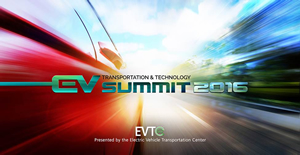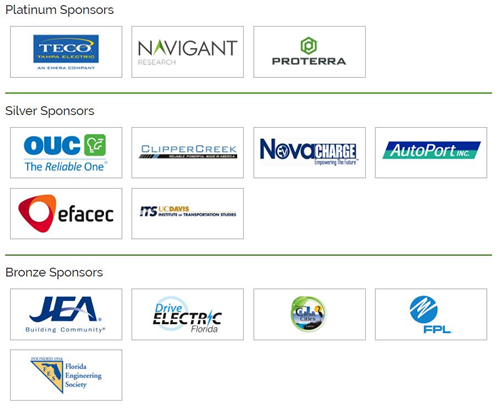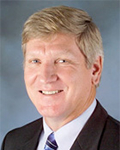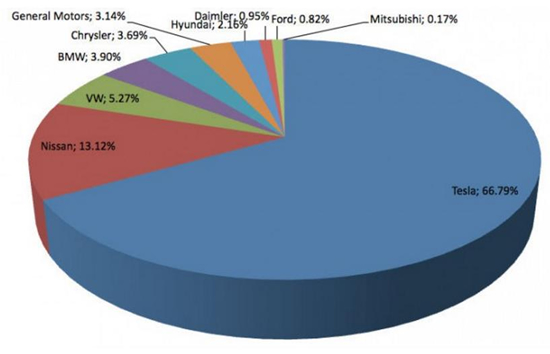| Volume 2, Issue 4 - Autumn 2016 | |||||||||
EVTC Spotlight
General Interest
Meetings & ConferencesNovember 29-30, 2016 | Florida Automated Vehicles Summit | Tampa, FL
EVTC's 2016 EV Transportation & Technology SummitThe Electric Vehicle Transportation Center hosted over three days of meetings with key EV stakeholders at the Florida Solar Energy Center, October 17-20. The EV Transportation and Technology Summit began on October 17th with a full day of workshops and ran through the 20th, with presentations on planning, economics, technology, mobility, Smart Cities and infrastructure.
This year's Summit speaker list represented a broad cross-section of those involved in the deployment of electric vehicles and included, Scott Miller (ChargePoint), Leslie Eudy (National Renewable Energy Laboratory), Matt Horton (Proterra) and Dr. Steven Polzin (Center for Urban Transportation Research) and 14 other speakers. The Summit drew attendees from as far away as Israel, Georgia (Europe), Columbia, California, Mexico and Hawaii.
Sponsorship was strong at this year's Summit with 14 companies and organizations participating.
|
Electric vehicles are three times more efficient than internal combustion engines due to the use of advanced lithium ion batteries and highly efficient electric motors. The 2016 Electric Vehicle Technology Workshop was designed to cover the basics of electric vehicle technologies while taking a deep dive into three important aspects: batteries, electric powertrains, and vehicle to grid (V2G) technologies. Drs. Matthieu Dubary, Nan Qin, and Paul Brooker gave presentations about state-of-the-art battery technologies and how they are applied in electric vehicles. They introduced the chemistry of various battery technologies, primarily lithium-ion batteries, with an emphasis on their performance and degradation modes. Attendees also learned about the various configurations of electric vehicles (EV, PHEV, EREV), vehicle energy management systems, and how these configurations may be leveraged to meet energy needs beyond transportation. The impact of EV charging on commercial building power levels, as well as integration of EVs with building and grid (V2B, V2G) was also explored. A case study of a five-year EV ownership will also presented by Danny Parker.
This year's workshop was targeted toward audiences that include science and engineering students, EV enthusiasts, building energy managers, and fleet operators. Presentations from the Workshops are available at http://www.evsummit.org/schedule.php.
FSEC Director Dr. James Fenton Elected Secretary of the Electrochemical Society
|
Dr. James Fenton is the Director of the University of Central Florida's Solar Energy Center (FSEC). Prior to joining FSEC, Dr. Fenton spent 20 years as a chemical engineering professor at the University of Connecticut. Dr. Fenton's research activities are in fuel cells, energy storage, alternative fuels and sustainable energy. He is the author of more than 120 scientific publications, holds four patents and is a Fellow and Secretary of The Electrochemical Society (ECS). The mission of ECS is to advance the theory and practice of electrochemical and solid state science, technology and allied subjects.
University of Hawaii EVTC Researcher's Presents Battery Diagnostics Course
|
Dr. Matthieu Dubarry conducted a day-long course on battery diagnosis via differential techniques at the ECS/PRIME meeting, which was held in Honolulu in October 2016. Two techniques have emerged (or re-emerged) in recent years: the incremental capacity analysis (ICA) and the differential voltage analysis (DVA). Both techniques have been proven to be extremely powerful in helping to determine battery degradation modes. The course included a historical background and a detailed overview of the principles and limitations of both methods. There was also a presentation of the impact of the major degradation modes, and a review of several case studies covering a selection of conventional chemistries (e.g. graphite, Li4Ti5O12, LiCoO2, LiMn2O4, or LiFePO4). The last part of the class included an interactive live analysis using a Matlab®-based toolbox.
EVTC Research Report Update
EVTC staff continuously publishes the results of their research, which can be found on our website. Currently, there are over 50 publications that can provide valuable and interesting information on everything from EV life-cycle assessments to the role of EVs in Smart Grid applications. The individual research project's webpage highlights the project's objective, provides a brief description, and outlines the research results, their impacts and benefits. Below is list of publications added since June, 2016. A list of all EVTC publications can be found at: https://evtc.fsec.ucf.edu/publications/.
General Interest
September 2016 Battery Electric Car Sales
Source: HybridCars.com
|
Electric Transit Buses: Clean, Quiet, Efficient
Electric bus mass transit combines one of the most efficient methods of transportation with the opportunity to significantly reverse the harmful health and environmental impact of petroleum based mass transit. NREL's 2016 head-to-head evaluation of 12 revenue service battery electric buses documents a fuel efficiency nearly four times better than the other buses in service.
|
Source: National Renewable Energy Laboratory
Clean Air Future, Health and Climate Benefits of EVs
This October 2016 study by the American Lung Association in California details significant health improvements and financial savings. The report estimates that passenger vehicles contributed $37 billion in health and climate cost in 2015.
|
Source: American Lung Association in California
Volkswagen Clean Air Act Partial Settlement
On June 28, 2016, the United States lodged with the court a settlement with automakers Volkswagen AG, Audi AG, Volkswagen Group of America, Inc., and Volkswagen Group of America Chattanooga Operations, LLC (collectively “Volkswagen”). On October 25, 2016, the court approved the settlement. The settlement partially resolves allegations that Volkswagen violated the Clean Air Act (“CAA”) by the sale of approximately 500,000 model year 2009 to 2015 motor vehicles containing 2.0 liter diesel engines equipped with “defeat devices” The settlement is a partial settlement because it only addresses what Volkswagen must do to address the 2.0 liter cars on the road and the pollution from these vehicles, and does not address other aspects of the United States’ complaint. Source: US Environmental Protection Agency
New Data Shows Growing Consumer Interest in EVs
The second annual survey by the Consumer Federation of America (CFA) details how interest in purchasing an electric vehicle is growing. CFA found that there are more models choices and that vehicle prices are becoming competitive with conventionally fueled vehicles. Interest in purchasing a vehicle rose from 31% in 2015 to 36% in 2016. Young adults (18-34) are the most interested group, 50% of the age group said they would consider buying and EV. Source: Consumer Federation of America
Useful Links
Electric Vehicle Transportation Center
EVTC's website includes a complete listing of all EVTC information, research projects, reports and staff.
FAST Act
U. S. Department of Transportation site for information on the 2015 transportation bill.
Alternative Fuels Data Center
Visit the U.S. Department of Energy's Alternative Fuels Data Center site for electric vehicles. The site contains information on the different types of electric vehicles, the benefits and considerations of owning an EV, a recharging station locator, information on incentives and legislation, and much more.
University Transportation Centers
This site provides information about the University Transportation Centers, including a listing of UTC centers, publications and external links related to transportation education and training sites.
Transportation Research Board
The Transportation Research Board's Research in Progress (RiP) website contains more than 13,000 current or recently completed transportation research projects. http://rip.trb.org/
TRID is an integrated database that provides access to more than one million records of transportation research worldwide. http://www.trb.org/AboutTRB/ResourcesandDatabases.aspx
See the schedule of conferences and webinars hosted by the Transportation Research Board (TRB) at: http://www.trb.org/Calendar/Calendar.aspx
American National Standards Institute (ANSI)
ANSI serves as a coordinator for the development of EVSE and PEV standards by the Society of Automotive Engineers (SAE), the National Highway Traffic Safety Administration (NHTSA) and many others. Their November 2014 Progress Report, "The Standardization Roadmap for Electric Vehicles" is an excellent source of information on standards development for electric vehicles and the associated infrastructure.
Idaho National Labs (INL)
Advanced Vehicle Testing (AVTA). Visit this site for extensive EV related data, research and development programs.
National Renewable Energy Laboratory (NREL)
NREL conducts transportation research, development, and deployment (RD&D) to accelerate the widespread adoption of high-performance, low-emission, energy-efficient passenger and freight vehicles.










